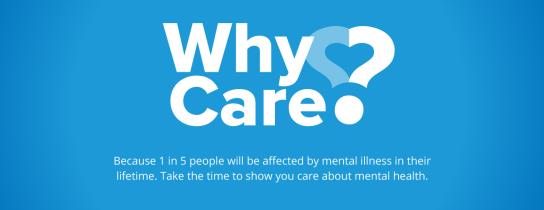
What Can You Do This May for Mental Health Awareness Month?
Mental health, a topic that for many years has been associated with a stigma, is just as important now as ever. People often feel alienated and as if they can’t talk about their mental health condition and that should not be the case.
Here are some ways you can focus on better mental health for yourself this May and beyond.
- Regulate your sleep schedule.
Studies show that going to bed at the same time each day and getting the recommended amount of sleep (7-9 hours for adults and 8-10 hours for teens) can have a positive impact on your mood.
- Journal your thoughts.
We all too often think about journaling or keeping a diary as an activity for children, but it can be helpful for adults, too. Whether it’s writing down positive affirmations to yourself or writing down the negative thoughts to get them out of your head, journaling can help you get through difficult times and thoughts. - Start exercising or participate in a physical activity.
No one form of exercise is right for everybody, but just doing a physical activity can reduce your stress and release endorphins to boost your mood. Plus, if you exercise outdoors you’ll even get the benefits of vitamin D exposure.
- Talk to someone.
It’s not always easy to talk to someone about how you’re feeling. Find someone you trust and talk to them when you’re feeling sad, depressed, angry, anxious, or any other way that is inhibiting your daily activities. Sometimes you just need to vent and other times you may be looking for advice. Turning to a person you trust in times of need or self-doubt isn’t a sign of weakness, it’s actually a sign of strength.
Every once in a while, take the time to check in with your family and friends about their mental health. For some people, a simple “How are you?” or “How have things been?” will open the doors to an honest conversation where they feel safe expressing the inner workings of their thoughts and feelings.
It’s natural for people to feel awkward bringing up the topic of mental health, especially if they’ve never talked to the person about it before. Seizetheawkward.org offers resources for starting these conversations and helping those you care about long-term.
Here are some conversation starters:
- “Maybe it’s just me, but I was wondering if you were all right.”
- “I’ve noticed you’ve been down lately, what’s going on?”
- “Seems like you haven’t been yourself lately. What’s up?”
- “Are you OK? You don’t seem like yourself lately.”
After the conversation, be sure to maintain that person’s trust, but seek outside help if needed. The important thing is to not be afraid to speak up if you feel someone you know is in need.
We need to help get rid of the stigma surrounding mental health and make it a topic of conversation. Take the time to focus on not only your mental health, but the mental health of those around you. Starting these healthy check-ins this May can help form long-term habits.
References:
Seize the Awkward
National Sleep Foundation
Psychology Today
National Alliance on Mental Illness
Helpful Resource Hotlines:
24-Hour Mobile Mental Health Team: 1-888-750-2266
ORMC Behavioral Health/OR ER: 845-333-2233 Inpatient Behavioral Health Services
Suicide Prevention Lifeline: Are you in crisis? Are you feeling desperate, alone or hopeless? Call the National Suicide Prevention Lifeline at 1-800-273-TALK (8255), a free, 24-hour hotline available to anyone in suicidal crisis or emotional distress. Your call will be routed to the nearest crisis center to you.
National Domestic Violence Hotline at 1-800-799-SAFE (7233), 1-800-787-3224 (TTY), or The Hotline

 Optum Radiology at Crystal Run Healthcare
Optum Radiology at Crystal Run Healthcare Same and next-day pediatric appointments
Same and next-day pediatric appointments